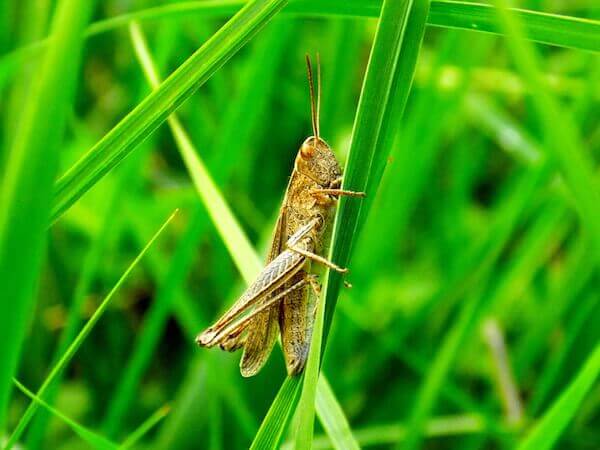
Understanding Pest Management
Integrated Pest Management is an important part of tending to your Florida lawn. If you’ve been maintaining your turf for a good period of time, you understand the intricacies of an ecosystem-based strategy for pest management. If you’re new to the turfgrass game, know that Florida-friendly laws are full of insects and managing them isn’t as difficult as it may seem.
Florida lawns are ecosystems that thrive when the right plants are in the right place. They provide a place for your family to gather as well as a home to all kinds of wildlife, including birds, insects, reptiles, mammals and amphibians. Each has its part to play in keeping things in balance. However, pests can easily take over your landscape if you don’t take proper care of your turf. This is where Integrated Pest Management comes into play.
Integrated Pest Management supports your landscape ecosystem while properly eradicating pest infestations as they crop up. Surprisingly, properly maintained ecosystems are able to support and protect themselves. There are many types of beneficial insects, like big-eyed bugs, anthocorids, nabids, earwigs, ground beetles, and spiders that feed on damaging insect pests, like chinch bugs. If you were to frequently and routinely apply pesticides to control insect pests, you may kill the beneficial organisms and make your pest issues worse.
The most important thing you can do to prevent insect pests from damaging your lawn is maintaining a healthy lawn. Checking your lawn for any signs of damage can ensure you stop pest insects before they become an infestation. Perform frequent inspections of your lawn in the summer and fall, and continue monitoring your lawn periodically, throughout the remainder of the year. When you notice a “hot spot” of pest activity, consult with a lawncare professional for treatment. Sod is a living, perishable amenity to your home and deserves expert care. If you prefer a “DIY” approach, be sure to note your target pest(s) and apply a pesticide as per label instructions.
Another important factor in pest management is maintaining a properly mowed lawn. Healthy turf is the first line of defense against home lawn pests. Proper mowing practices include proper mowing height and the sharpening of blades, twice annually. Improper mowing coupled with improper care can cause turf to develop a thick mat of thatch, a combination of dead and dying shoots that trap moisture. This creates an environment where insect pests thrive and can cause further damage to your lawn. When properly mowed, the ecosystem you’ve fostered can thrive and keep insect pests at bay.
Integrated pest management is an effective way to control the damage caused by insect pest infestation without compromising the ecosystem. It is also an important part of maintaining a Florida-friendly lawn. If you have questions about how to identify a pest infestation and what measures should be taken to treat it, contact Duda Sod today.